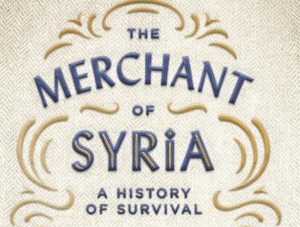Did you know? The #Syria that’s not in the news
 For a short time, Syria had faded somewhat from the news agenda. That was either a blessing or a curse, depending on how you see it.
For a short time, Syria had faded somewhat from the news agenda. That was either a blessing or a curse, depending on how you see it.
But now it’s back and it’s time to consider a few interesting points about Syria from British Arabist Diana Darke’s book, ‘The Merchant of Syria: A History of Survival’. (I’ve written previously about the book – click here, here and here.)
** Syria is at the junction of trade routes that ran east-west between Europe and the Orient and north-south between Anatolia and Egypt
** When the Muslim army surged into Syria and conquered it in the 8th century, the Byzantine emperor Heraclitus was recorded by Arab historian Al Baladhuri to have cried out: “Farewell, O Syria, and what an excellent country this is for the enemy!”
** “The art of the deal, in many ways, began here,” writes Ms Darke. For, the native Phoenicians set off and founded Carthage and Cadiz, “invented the phonetic alphabet to record their complex business transactions.”
** The world’s first ever musical melody was found in Syria on a 3,400–year-old clay tablet unearthed at Ugarit. It is known as the Hurrian hymn.
** The 1860 war, like the conflict that has raged in Syria more recently, is often called a civil war.
** After WWI, the US indicated that it had more sound intentions towards Syria than the Europeans. An Inter-Allied Commission sent by President Woodrow Wilson to Greater Syria found that the population rejected the French mandate and the Balfour Declaration. It also found that locals wanted a unified Greater Syria with Palestine incorporated. But the results of the Commission, “deliberately not published till 1922”, were rejected by France and ignored by Britain.

